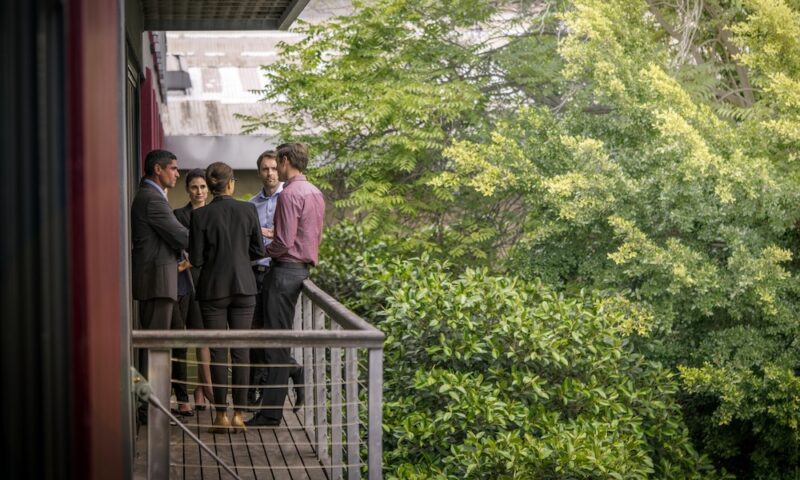
Report: Meeting Planners Looking for Flexible Spaces
The IACC report said that interest in content and networking has declined in favor of venue amenities.
Amenities such as a venue’s physical characteristics and quality of food and beverage are increasingly important to meeting planners, according to a new survey.
The 2025 Meeting Room of the Future Report, produced by IACC, an association of meeting professionals, in partnership with Development Counsellors International, was released last month. The survey is based on responses from more than 200 meeting planners in North America and Europe; approximately a third of the respondents represented associations and nonprofits.
The new report found that 55 percent of planners consider a venue’s physical characteristics a key factor in support of their meeting objectives—a leap from 36 percent in the 2023 version of the survey. The importance of a venue’s food and beverage offerings also spiked, from 30 percent in 2023 to 50 percent in the new survey.
Conversely, the importance of content and education declined, with 50 percent of planners citing it as key, compared to 65 percent in 2023. Networking similarly declined as a priority, sinking from 52 to 33 percent.
“The need for experience creation continues to grow as planners return their focus to the factors that traditionally attract delegates to events,” the report said. “Planners’ top priorities are thoughtful and accessible food and beverage options, room lighting and acoustics, and unique experiences for delegates.”
Planners are increasingly on the lookout for unique meeting locations like stadiums, museums, and vineyards.
Related to that, the report found that planners are increasingly on the lookout for unique meeting locations: Specialty venues like stadiums, museums, vineyards, and more were selected by 51 percent of planners, compared to 33 percent in 2203.
But the report noted that planners aren’t necessarily discounting the importance of education, so much as seeking venues that allow for greater flexibility in terms of learning methods and group activities. “The demand for adaptable meeting spaces continues to rise as planners respond to diverse session formats, last-minute changes, and increasingly personalised attendee experiences,” the report said. “This emphasis on fluidity challenges venues to move beyond static layouts, offering infrastructure and service that respond just as quickly as the content they support.”
Though planners cited strong internet connections as key to a successful meeting, overall they’re souring on the complexity of hosting hybrid or livestreamed events, with the percentage of planners saying they don’t plan to livestream doubling between the surveys, from 21 percent to 42 percent this year.
In terms of social responsibility factors, planners said they consider accessibility a high priority, but are less concerned about the environmental impact of their events: 82 percent of planners said they don’t require a carbon footprint measurement for their event.
Asked what meeting-venue elements were expected to increase in importance in the next three years, a majority of planners prioritized “location and access,” followed by “access to interactive technology,” food and beverage, flexibility of meeting space, and sustainable practices.
“As the industry continues to recover and adapt post-pandemic, the focus on creating unique and engaging experiences for attendees has never been more critical,” the report said. “Meeting planners prioritise flexible room layouts, authentic food and beverage offerings and unique local experiences to enhance the overall event.”
[istock/Portra]






Comments